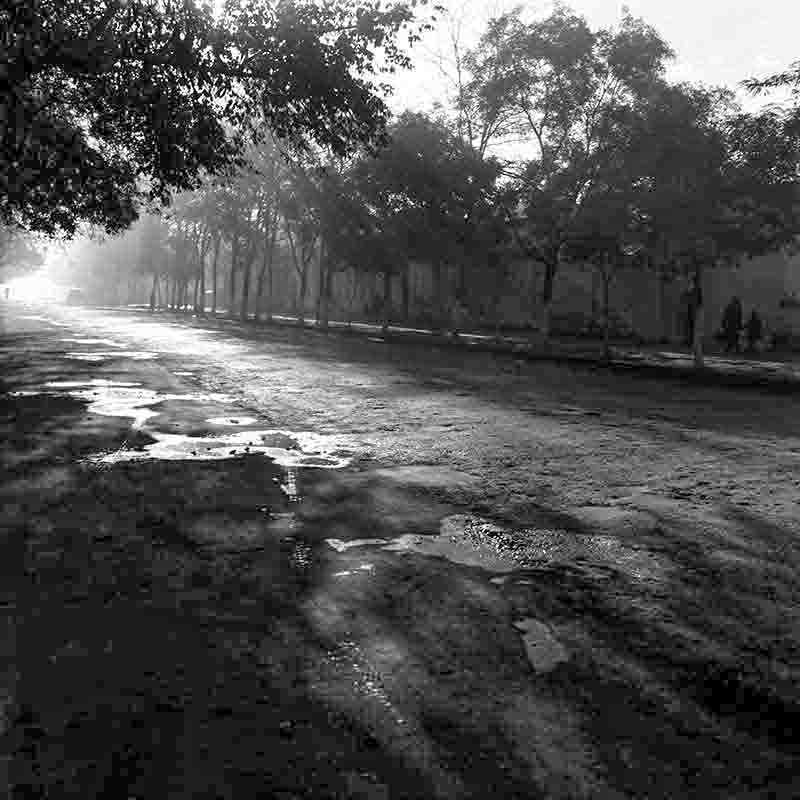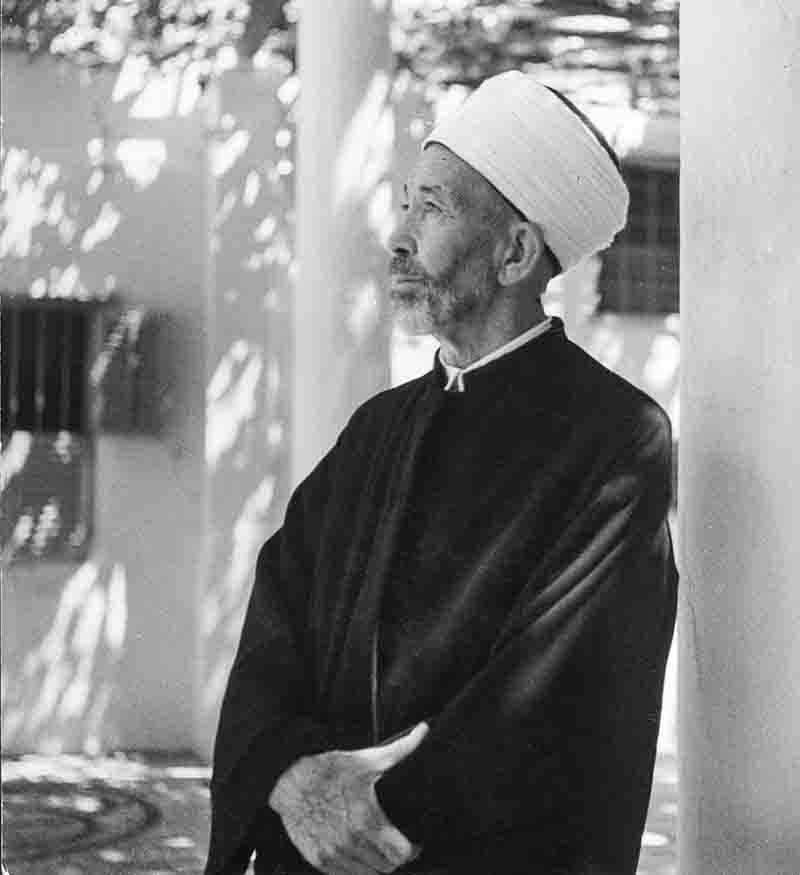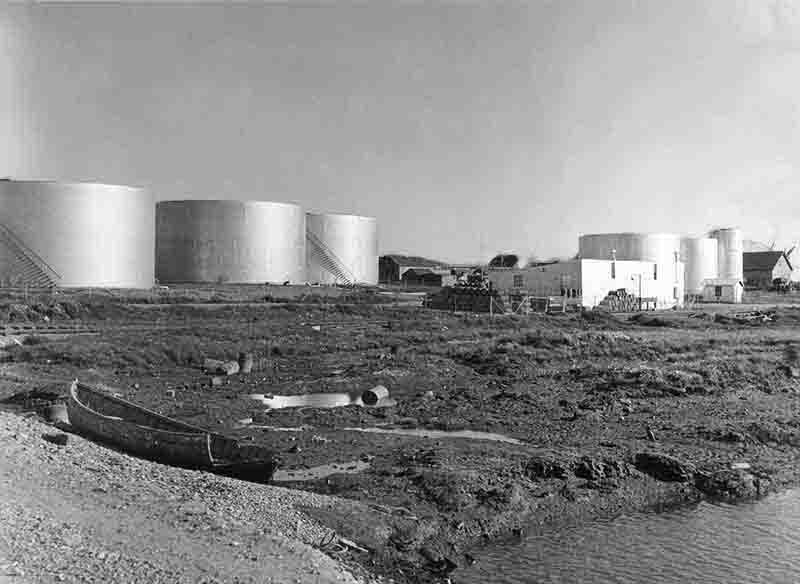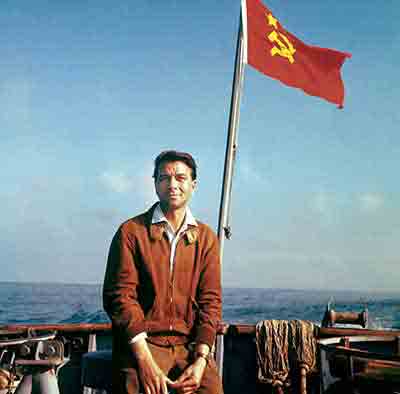From Oil to Tech: Baku’s Strategic Location
Baku has long been at the crossroads of civilizations, serving as a vital point along the Silk Road. Its rich history includes contributions from Persian, Ottoman, Russian, and Soviet era, which have shaped its architecture, culture, and identity.

Baku is a key player in energy politics, especially in the export of oil and natural gas through major pipelines like the Baku-Tbilisi-Ceyhan.
12 key facts about Baku
-
Location and Geography: Baku is the capital of Azerbaijan, situated on the Caspian Sea. It is the lowest-lying national capital in the world, at 28 meters below sea level.
-
Historic Crossroads: Baku has long been a crossroads of civilizations, located along the Silk Road, connecting East and West. This has influenced its diverse culture, architecture, and population.
-
Old City (Icherisheher): The Old City of Baku is a UNESCO World Heritage Site. It includes key landmarks like the Maiden Tower and the Palace of the Shirvanshahs, showcasing Islamic and medieval architecture.
-
19th-Century Oil Boom: Baku was one of the first cities in the world to experience an oil boom in the late 19th century. It became a leading center for oil production, attracting global attention.
-
Energy Hub: Today, Baku remains a major global player in the oil and natural gas industry, with the Baku-Tbilisi-Ceyhan pipeline serving as a critical route for Caspian energy exports to Europe and beyond.
-
Geopolitical Importance: Due to its strategic location on the Caspian Sea and energy resources, Baku plays a crucial role in geopolitics, influencing international relations in the Caucasus region, Russia, and the Middle East.
-
Modern Architecture: Baku has seen rapid urban development, with modern landmarks such as the Flame Towers and the Heydar Aliyev Center, designed by renowned architect Zaha Hadid.
-
Cultural Diversity: Baku's population reflects a blend of Azerbaijani, Persian, Russian, and Turkish influences, creating a diverse social and cultural fabric shaped by centuries of migration and foreign rule.
-
Economic Transition: Baku’s economy, historically driven by oil, is working towards diversification. Sectors such as tourism, technology, and services are becoming more prominent to reduce reliance on energy exports.
-
Tourism Destination: Baku is a growing tourism hub, offering a mix of ancient history and modern luxury. The city hosts major international events like the Formula 1 Azerbaijan Grand Prix.
-
Caspian Sea: As the largest city on the Caspian Sea, Baku benefits from its port, which is key for trade and energy transport across the region.
-
Soviet Legacy: Baku was part of the USSR until Azerbaijan gained independence in 1991. Soviet influence is still visible in its architecture and social structure, but the city has since embraced modernization.
These facts offer a comprehensive understanding of Baku's key role in history, culture, energy, and global relations.
Baku and the Silk Road: A Journey Through Commerce and Culture

Azerbaijan has a long history of Islamic scholarship and Sufi traditions. Baku was historically a crossroads of Islamic, Persian, and Turkic cultures, influenced by Islamic art and architecture.
Baku's most significant periods was during the 19th-century oil boom.
The city became a major player in the global oil industry, with the development of vast oil fields that attracted investment from around the world.
Its geopolitical significance, due to its location on the Caspian Sea, places it at the center of energy discussions involving Europe, Russia, and the Middle East.
Baku is a city of contrasts, featuring the historic Old City (Icherisheher) with its medieval landmarks like the Maiden Tower and Shirvanshahs' Palace, alongside modern marvels such as the Flame Towers and the Heydar Aliyev Center.
Peter Bock-Schroeder visited Baku in 1956 as part of his Soviet Union photo reportage where he captured a number of memorable pictures.
Baku Timeline
Baku, the capital of Azerbaijan, has a vibrant and dynamic history that stretches back centuries.
Initially a small settlement in the 8th century, it evolved into a key center for trade due to its strategic location between Europe and Asia.
| Year | Milestone |
|---|---|
| 8th Century | Baku was established as a settlement, with references in Arab chronicles. |
| 12th Century | The construction of the Maiden Tower began, symbolizing Baku’s importance. |
| 14th Century | Baku became part of the Shirvanshah state, which contributed to its growth and cultural development. |
| 15th Century | The Palace of the Shirvanshahs was built, serving as the royal residence and an important architectural site. |
| 16th Century | Baku fell under the control of the Safavid Empire, further enhancing its political and cultural significance. |
| 18th Century | The city was taken by Persian rulers, becoming a crucial center for trade and commerce. |
| 1806 | Baku was annexed by the Russian Empire during the Russo-Persian War, marking a significant shift in control. |
| 1826 | The establishment of the first oil wells began, initiating Baku's transformation into an oil-producing powerhouse. |
| 1872 | The world's first oil pipeline was constructed from Baku to the Black Sea, showcasing its industrial advancement. |
| 1901 | Baku produced more than half of the world's oil, becoming a significant player in the global oil market. |
| 1918 | The Azerbaijan Democratic Republic was established, with Baku as its capital, marking a new political era. |
| 1920 | The city was seized by the Soviet Red Army, leading to the incorporation of Azerbaijan into the Soviet Union. |
| 1930s | Major industrialization occurred, with the development of the Baku oil industry and modernization of the city. |
| 1941-1945 | During World War II, Baku played a critical role in supplying oil to the Soviet military. |
| 1960s-70s | Baku saw significant economic growth and modernization, including the development of new housing and infrastructure. |
| 1980s | A surge in nationalism emerged, leading to calls for independence from Soviet rule. |
| 1991 | Azerbaijan declared independence from the Soviet Union, with Baku as the capital of the newly formed republic. |
| 1992 | Baku was recognized as the capital city and began significant political, economic, and social reforms. |
| 2000s | Major investments in the oil industry and infrastructure transformed Baku into a global energy hub, notably with the Baku-Tbilisi-Ceyhan pipeline. |
| 2012 | The Heydar Aliyev Center, designed by Zaha Hadid, was inaugurated, symbolizing modern architecture and culture. |
| 2015 | The Baku Grand Prix, part of the Formula One World Championship, was introduced, boosting tourism and global visibility. |
| 2017 | Baku hosted the Islamic Solidarity Games, showcasing its growing role as a host city for international sporting events. |
| 2020s | Baku continues to develop as a cultural and economic hub, attracting international investments and hosting major events. |
This timeline highlights the key events and developments in Baku's rich history, from its establishment as a settlement to its current status as a modern capital city. The timeline illustrates the significant political, cultural, and economic changes that have shaped Baku over the centuries.
Timeless Baku: Rare Images That Capture Its Essence

Baku is a key player in energy politics, especially in the export of oil and natural gas through major pipelines like the Baku-Tbilisi-Ceyhan.
Baku: Historical Crossroads
Baku, the capital of Azerbaijan, is a city positioned on the western shore of the Caspian Sea, has been a significant crossroads for centuries, where Eastern and Western civilizations meet.
The city’s history is rooted in its strategic location, which made it a vital link in the Silk Road, the ancient trade route connecting Europe and Asia.
This positioning allowed Baku to flourish as a center of commerce and culture, drawing influences from neighboring empires and distant lands.
Traders, scholars, and adventurers passed through Baku, leaving behind a legacy of cultural and economic exchange that shaped its development over time.
During the 19th century, the discovery of vast oil reserves transformed Baku into one of the world's leading oil producers, further enhancing its global importance.
The oil boom attracted investors, industrialists, and workers from all over the world, leading to rapid urbanization and economic growth.
Architectural Heritage: Blending Old and New
One of Baku’s most fascinating aspects is its architectural diversity.
The city is home to the historic Old City, or Icherisheher, a UNESCO World Heritage site that dates back to the 12th century.
Walking through the narrow streets of the Old City feels like stepping back in time.
Here, you’ll find the Maiden Tower and the Palace of the Shirvanshahs, two iconic structures that symbolize Baku’s ancient roots.
The Old City is a living museum of medieval Islamic architecture, but it also reflects the layers of history that Baku has experienced, from its role as a Silk Road hub to its time under Persian and Russian control.
In recent years, the city has undergone a massive modernization effort, leading to the construction of futuristic skyscrapers and modern landmarks like the Flame Towers.
These sleek, flame-shaped buildings dominate the skyline and represent Baku’s ambition to position itself as a modern, forward-looking city.
The contrast between the medieval Old City and the modern architecture just outside its walls is striking and highlights Baku’s ability to balance its historical heritage with its role as a contemporary global city.
The Oil Boom and Its Impact on Baku
Baku’s history as an oil city began in the 19th century, when large oil deposits were discovered in the region.
By the early 20th century, Baku had become one of the world's top oil producers, earning the nickname "Black Gold Capital."
The oil industry transformed Baku’s economy and played a crucial role in shaping its modern identity.
The influx of wealth led to rapid development and attracted a wave of foreign investment and talent.
Oil barons like the Nobel brothers (yes, of Nobel Prize fame) established major operations in Baku, and the city became a magnet for engineers, scientists, and entrepreneurs.
The oil boom not only changed Baku’s skyline but also influenced its social and cultural life.
The wealth generated from oil allowed for the construction of grand buildings, theaters, and schools, and it brought a cosmopolitan flair to the city.
However, this period also saw intense competition and sometimes conflict over control of the lucrative oil fields.
The Bolshevik Revolution and the subsequent Soviet takeover of Azerbaijan in 1920 nationalized the oil industry, shifting control away from foreign hands.
Today, oil and natural gas remain central to Baku’s economy.
The city is a key player in global energy markets, with pipelines like the Baku-Tbilisi-Ceyhan (BTC) pipeline connecting Azerbaijan’s oil fields to international markets.
While the city has enjoyed prosperity from its oil wealth, it also faces challenges in diversifying its economy to reduce reliance on fossil fuels.
Geopolitical Importance: Baku’s Role in Energy Politics
Baku’s location on the Caspian Sea gives it significant geopolitical importance, especially in the context of energy politics.
As a major producer of oil and natural gas, Azerbaijan plays a crucial role in supplying energy to Europe and beyond.
The Caspian region has long been a focal point of global interest due to its vast energy reserves, and Baku is at the heart of this energy landscape.
The Baku-Tbilisi-Ceyhan pipeline, which runs from the Caspian Sea to the Mediterranean, is one of the most significant energy projects in the region.
It allows Azerbaijan to export its oil to Western markets without relying on Russia, making it a key player in Europe’s efforts to diversify its energy sources.
This strategic importance has made Baku a focal point in international relations, as countries seek to secure energy partnerships and influence in the region.
In addition to its role in energy exports, Baku has also hosted several high-profile international events, including the European Games in 2015 and the Formula 1 Azerbaijan Grand Prix.
These events have further solidified Baku’s status as a global city and a hub of international activity.
The city’s geopolitical significance continues to shape its future as it navigates the complex dynamics of regional and global politics.
Modern Development and Infrastructure
In recent decades, Baku has undergone significant transformation, with massive infrastructure projects reshaping the city.
The waterfront promenade, known as the Baku Boulevard, stretches for miles along the Caspian Sea and serves as a central gathering place for locals and tourists alike.
The Boulevard is home to numerous parks, cafes, and attractions, making it a focal point of the city’s social life.
Baku’s skyline has also been dramatically altered by the construction of towering skyscrapers, luxury hotels, and modern shopping centers.
The Flame Towers, which light up the night sky with LED displays, are perhaps the most recognizable symbol of this modern development.
These projects are part of a broader effort to position Baku as a global business and tourism destination.
The city has also made efforts to preserve its historic charm.
The Old City has been carefully restored, and cultural landmarks like the Azerbaijan Carpet Museum showcase the country’s rich heritage.
Baku’s ability to balance modernity with tradition is one of its most appealing aspects, as visitors can experience both cutting-edge architecture and centuries-old history in a single day.
The Social and Cultural Fabric of Baku
Baku is a city where East meets West, and its social and cultural fabric reflects this blend of influences.
The population of Baku is diverse, with Azerbaijani, Persian, Russian, Turkish, and other ethnic groups living side by side.
This diversity is reflected in the city’s culture, language, and religion.
While Azerbaijan is a predominantly Muslim country, Baku has a long history of religious tolerance, and you’ll find mosques, churches, and synagogues coexisting peacefully within the city.
Culturally, Baku is a vibrant hub of activity.
The mugham music tradition, a unique blend of Persian and Caucasian musical styles, remains an important part of Baku’s cultural identity.
At the same time, international music festivals and concerts bring global talent to the city, making it a cultural crossroads in the truest sense.
The influence of Soviet rule is still visible in Baku’s culture, particularly in the arts and education.
Many of the city’s institutions, including its universities and museums, were established during the Soviet era and continue to play a key role in shaping Baku’s intellectual life.
Today, Baku is a city that embraces both its past and its future, with a dynamic cultural scene that reflects its unique position at the crossroads of East and West.
Baku as a Tourism Destination
In recent years, Baku has emerged as a popular destination for tourists from around the world.
The city offers a mix of historical attractions, modern amenities, and natural beauty, making it an appealing destination for a wide range of travelers.
Visitors can explore the Old City, with its ancient walls and historic landmarks, or take a stroll along the modern Baku Boulevard to enjoy views of the Caspian Sea.
Baku’s cultural landmarks, such as the Maiden Tower and the Palace of the Shirvanshahs, attract history enthusiasts, while the Flame Towers and other modern developments appeal to those interested in architecture and design.
The city is also known for its vibrant culinary scene, with a wide variety of restaurants offering both traditional Azerbaijani dishes and international cuisine.
Tourism is a growing industry in Baku, and the city has invested heavily in infrastructure to accommodate the influx of visitors.
From luxury hotels to budget-friendly accommodations, Baku offers options for all types of travelers.
With its unique blend of history, culture, and modernity, Baku is quickly becoming one of the top destinations in the Caucasus region.
Baku 101:: Your Essential Guide to Azerbaijan’s Capital
Baku, the capital of Azerbaijan, is a city that truly embodies a fascinating blend of the old and the new.
Located on the shores of the Caspian Sea, Baku stands out with its unique skyline, which combines futuristic architecture with ancient structures.
-
Early Accounts of Oil Production: Medieval travellers documented the use of oil in daily life in Azerbaijan. Arabian historians like Baladzori (9th century) and Masudi-Abdul-Hussein (10th century) identified significant oil sources in the Absheron region
-
Early Drilling: In 1594, a well inscription in Balakhani pointed to a history of shaft extraction of oil. German diplomat Adam Oleari, in 1636, described Baku's 30 oil wells and the powerful force with which oil gushed from them.
-
First Drilled Oil Well: In 1846, more than a decade before the famous American discovery in Pennsylvania, Azerbaijan drilled its first oil well in Bibi-Heybat, marking a significant milestone in global oil history.
-
Rapid Growth and International Collaboration: The late 19th century witnessed an oil boom in Azerbaijan. Influx of foreign expertise, with notable contributions from figures like German chemist Carl Engler and Russian chemist Dmitry Mendeleyev, who played a role in promoting innovative techniques.
-
Haji Zeynalabdin Taghiyev: A prominent Azerbaijani oil baron and philanthropist.
-
Nobel Brothers: Played a key role in developing the oil industry, including building the world's first oil-carrying steamship, "Zoroaster," and pioneering oil pipeline construction.
-
Rothschild Brothers: Established the Caspian and Black Sea Oil Industry and Trade Society, further solidifying the international nature of the industry.
-
Azerbaijan's Global Dominanc: By the end of the 19th century, Azerbaijan was producing over half of the world's oil supply, marking a period of unprecedented dominance.
-
Impact of the Bolshevik Revolution: The Bolsheviks' rise to power in 1920 resulted in the nationalisation of the oil industry, redirecting its focus to serve the Soviet Union's interests and marking a turning point in Azerbaijan's oil history.
-
Modern Resurgence: Despite a decline during the Soviet period, the oil industry in Azerbaijan has witnessed a resurgence in recent decades, attracting substantial foreign investment and contributing significantly to the country's economy
Its rich culture, stunning landscapes, and warm hospitality make Baku a hidden gem in the heart of the Caucasus.
Explore Baku's Hidden Gems
Baku stands out as a city where rich history meets modern innovation.
Its diverse culture, significant economic development, and strategic geopolitical position make it a compelling destination for travelers and scholars alike.
Whether you're exploring the ancient streets of the Old City, marveling at modern architecture, or indulging in local cuisine, Baku offers a unique experience that reflects its complex heritage and bright future.
Baku: FAQ

Exclusive USSR Photos
In 1956, Peter Bock-Schroeder (1913-2001) was the first West-Geman photographer to be permitted to work in the USSR.
PBS